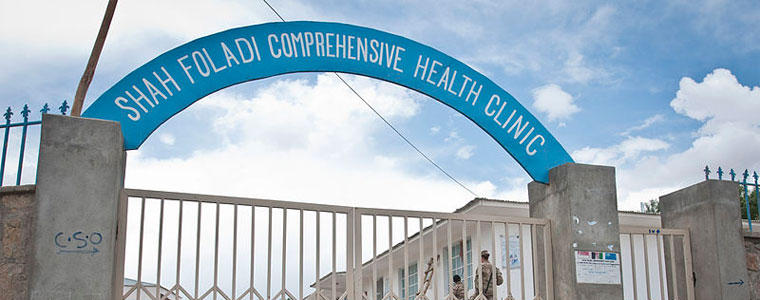The recently launched initiative, Alliance in Support of the Afghan People (ASAP), a bipartisan coalition dedicated to preserving and protecting the gains made in Afghanistan since 2001, is timely and welcome.

I share the views of ASAP, but that’s largely because I have been working on Afghanistan for 20 years and have a deep affection for that difficult and troubled country. I also understand why many Americans without that experience have doubts about the usefulness of our continued commitment to Afghanistan.
To me, one of the things that is most important about ASAP’s initiative is that it takes seriously the idea that more and more Americans need to be convinced that Afghanistan should not be abandoned, that coherent arguments must be made, and that such concerns must be taken seriously.
For most of the past decade, it was sufficient for public officials to remind Americans in their moments of doubt about the Afghan adventure that Afghanistan had sheltered al-Qaida, and the plans for 9/11 had been hatched in the Afghan mountains. But with the killing of al-Qaida leader Osama bin Laden more than two years ago as well as the emergence of threats from newly disordered parts of the world and the growing frustration with both corruption and ingratitude from Afghans whom we strived to help, Americans cannot be blamed for increasingly questioning our continued engagement in that distant country.
The national security argument might have been the only one capable of justifying to the American people the massive expenditure of resources and effort we have seen over the past dozen years, and the loss of almost 1,800 U.S. military fighters to hostile action. The drawback was that the national security element made many Afghans believe that Afghanistan was indispensable to U.S. interests, and that corrupt and predatory behavior would have no consequences as long as the American presence was tolerated. That seemed true for a while.
Now, the U.S.’s over-arching security objectives have been achieved: Afghanistan is unlikely to be the source of danger to the U.S., at least for a while.
But the Taliban continue to be a formidable threat to many Afghans and to their and the region’s fledgling government and economy. Furthermore, the commitments we have made, the value of our own prestige, and the benefits of a strategic relationship with Afghanistan ought to be enough of an argument to remain engaged with that country, albeit with fewer resource commitments.
There is no doubt that Afghanistan’s leaders haven’t made it easy to help. But President Hamid Karzai’s public statements of criticism should not be mistaken for the more quietly voiced appreciation of many Afghans for America’s efforts. The insurgency’s continued ability to function in parts of Afghanistan should not be confused with a widespread desire among Afghans to see the Taliban return to power. And our own sense of indignation at not being sufficiently appreciated should not allow us to hide from the mistakes we ourselves have made that have cost us so much goodwill among the Afghan people.
The new Alliance In Support of the Afghan People has rightly attracted marquee names as signatories, including the likes of former Secretary of State Madeleine Albright, former National Security Adviser Stephen Hadley (who is on the USIP board but signed onto ASAP in his personal capacity), former NATO Commander Admiral James Stavridis, former U.S. Ambassador to Iraq and Afghanistan Ryan Crocker, ex-White House Chief of Staff John Podesta, and feminist leader Gloria Steinem.
It is true that a reckless withdrawal from Afghanistan will put in jeopardy much of what has been achieved and could turn the country into a haven for extremists again. But it is more true that what has been achieved deserves to be preserved, not only for the sake of our security but for the sake of the many Afghans who believed our promises, fought alongside us, took risks to promote values we have in common, and suffered from the inadequacies of their own government which we have supported.
These Afghans will outlast the current government, and our relationship with them should as well.
Scott Smith is USIP’s director of Afghanistan and Central Asia programs and previously served as a senior special assistant to the United Nations Secretary General’s Special Representative to Afghanistan in Kabul. He is editor, with Moeed Yusuf and Colin Cookman, of the forthcoming book Getting It Right in Afghanistan (December 2013, United States Institute of Peace Press).



